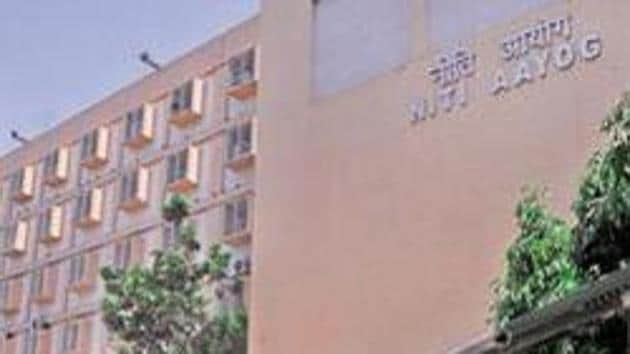NITI Aayog calls farmers’ panel formula impractical
The Commission set up in 2004 had submitted a report to the then government in 2006 suggesting that the way out of the farm crisis was to provide remunerative prices to the farmer.
The federal think tank NITI Aayog rejected the formula provided by the MS Swaminathan Commission or National Commission on Farmers (NCF) for calculating input costs as “impractical”, ahead of the cabinet’s expected announcement of sharply enhanced minimum support prices (MSP) for agricultural produce in the range of 150 per cent input costs.

The Commission set up in 2004 had submitted a report to the then government in 2006 suggesting that the way out of the farm crisis was to provide remunerative prices to the farmer. MSP should be 1.5 times the farmers’ input costs, the commission recommended while laying down the formula for calculating input costs to include the paid out cost (A2), the imputed value of family labour (FL) added to the interest on the value of owned capital assets, rent paid for leased in land or rental value of owned land (C2).
The government’s calculation of input costs will only include A2 and FL costs, Ramesh Chand, member (agriculture) NITI Aayog said.
“The land rental costs are too diverse across the country. The Swaminathan commission’s recommendation is impractical for policy implementation,” added NITI Aayog vice chairman Rajiv Kumar. The current government had initiated and implemented a set of reforms in the last four years that will ensure by 2022, India will enter a phase of sustained GDP growth of 8.5 to 9 per cent, said Kumar.
The think tank will in September hold India’s first ‘Global Mobility Summit’, to be inaugurated by Prime Minister Narendra Modi, CEO Amitabh Kant said. The summit will help drive government’s goal for vehicle electrification, renewable energy integration and job growth and also speed up India’s transition to a clean energy economy.
‘Global Mobility Summit’ will be organised in collaboration with various ministries and industry partners. “The focus will be on using mobility to generate jobs and push growth…The focus will be on public transport rather than luxury cars,” Kumar added.
Over 1,200 participants from across the world including government leadership, industry leaders, think tank and civil society organisations are likely to attend the summit






